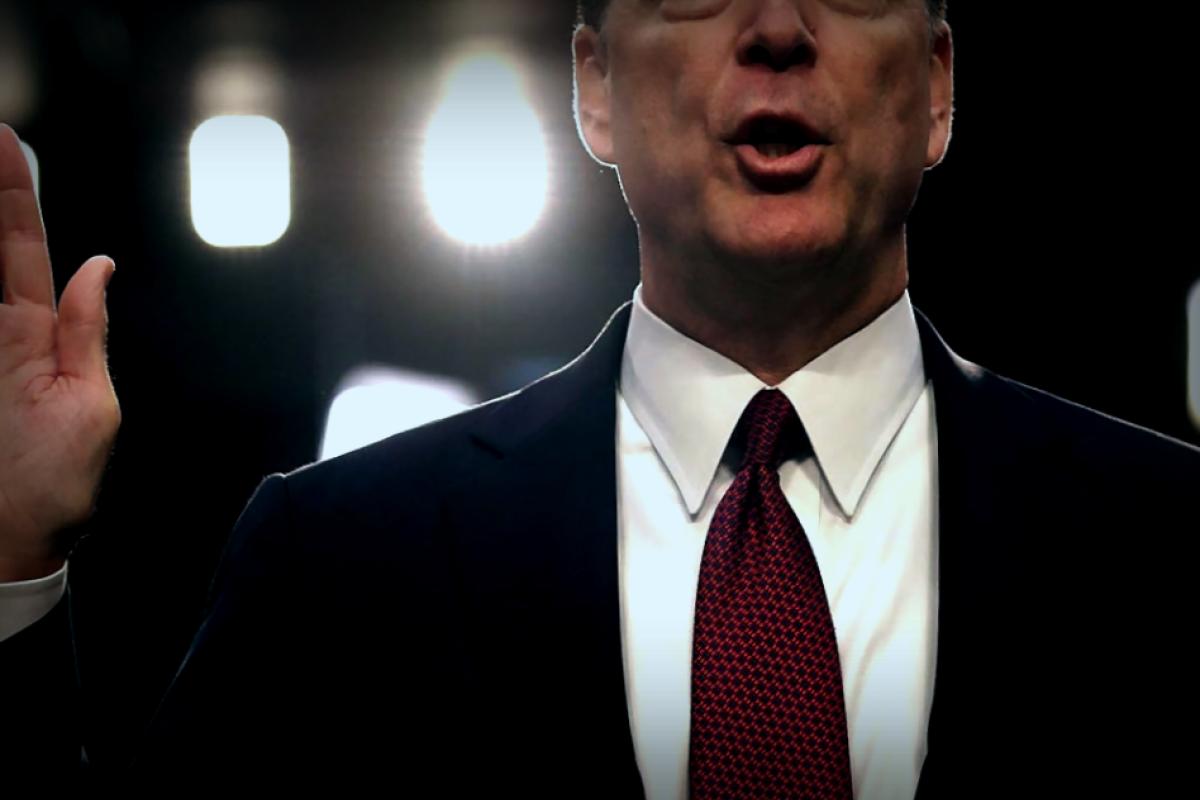The saga continues as former FBI Director James Comey faces charges from President Trump’s Justice Department. This historic indictment marks a fresh confrontation with a long-time adversary, tapping into the lingering controversies surrounding the FBI’s investigation into Trump’s Russian connections that dates back almost a decade.
On Thursday, a grand jury in Northern Virginia weighed in and opted to file two charges against Comey: one for making a false statement to Congress, and another for obstructing a congressional proceeding. Interestingly, the grand jury chose not to indict him on a third proposed charge related to additional false statements.
These charges stem from a contentious Senate hearing that took place in September 2020, during which lawmakers questioned Comey—who had been dismissed by Trump three years prior—about his handling of the 2016 investigations regarding Russia’s interference in the elections and the use of a personal email server by Hillary Clinton. Trump’s frustration over both of these inquiries has been evident for years.
It’s worth noting that the statute of limitations on these charges was set to expire next week.
In a recent video shared on Instagram, Comey maintains his innocence regarding the indictment.
Attorney General Pam Bondi released a statement, emphasizing that this indictment shows the DOJ’s dedication to accountability for those misusing their power to mislead the public.
Charge Breakdown: Count 1 – Lying about Media Leaks
The first indictment itemizes an accusation that Comey broke a federal law prohibiting materially false statements made to Congress and other federal bodies. This particular charge comes from an intense exchange between Comey and Republican Senator Ted Cruz during their 2020 hearings.
Senator Cruz grilled Comey about whether he had given the green light for another FBI official to serve as an anonymous source in any media reports connected to the investigations against Trump and Clinton.
Despite having answered negatively to a similar question during a Senate hearing in 2017, Cruz informed Comey that former FBI Deputy Director Andrew McCabe claimed he had informed the Wall Street Journal about critical details concerning the FBI’s Clinton inquiry—a statement Comey was strongly urged to clarify.
The indictment asserts that Comey’s claims were false as he was supposedly aware that he had indeed okayed an unnamed person’s contributions as a source for media regarding a specific FBI investigation. However, the specifics of which media leak is under scrutiny remain undisclosed.
According to a 2018 report by the Justice Department’s inspector general, Comey and McCabe’s accounts of their discussions following the report’s release contradicted each other, leading to questions about credibility.
McCabe has since contended he did not purposely mislead investigators and was dismissed just days before scheduled retirement in 2018.
Charge Explanation: Count 2 – Obstructing Congress
Alongside the false statement charge, Comey faces an indictment for purportedly attempting to “influence, obstruct and impede” a Senate Judiciary Committee investigation through falsehoods—a more nebulous allegation lacking specific details regarding the misleading statement involved.
Grand Jury’s Decision: One Charge Set Aside
In a surprising move, the grand jury ultimately decided against moving forward with one of the charges against Comey. This decision was thoroughly documented, with a signed statement from the grand jury’s foreperson lodged in court.
To secure federal indictments, prosecutors must convince a majority of a 23-member grand jury they possess probable cause—this is significantly easier than securing a conviction.
It’s quite rare for a grand jury to decline to indict a suspect, making this decision noteworthy.
The charge that didn’t make the cut was associated with potential false statements to Congress during a session in September 2020 with Senator Lindsey Graham. Graham’s inquiry pertained to claims about Clinton’s campaign purportedly devising a scandal related to Trump to divert attention from her email practices. Comey’s nonchalant dismissal, stating “That doesn’t ring a bell,” led to critiques raised by the Justice Department.
Overall, historical data from the Justice Department indicates that the current a pattern of grand juries resisting indictments is unusual and hints at a diminishing public confidence in the administration’s processes for oversight. This low-level indictment occurrence raises eyebrows about both the potential for justice and corruption as these legal battles continue in the public eye.





















